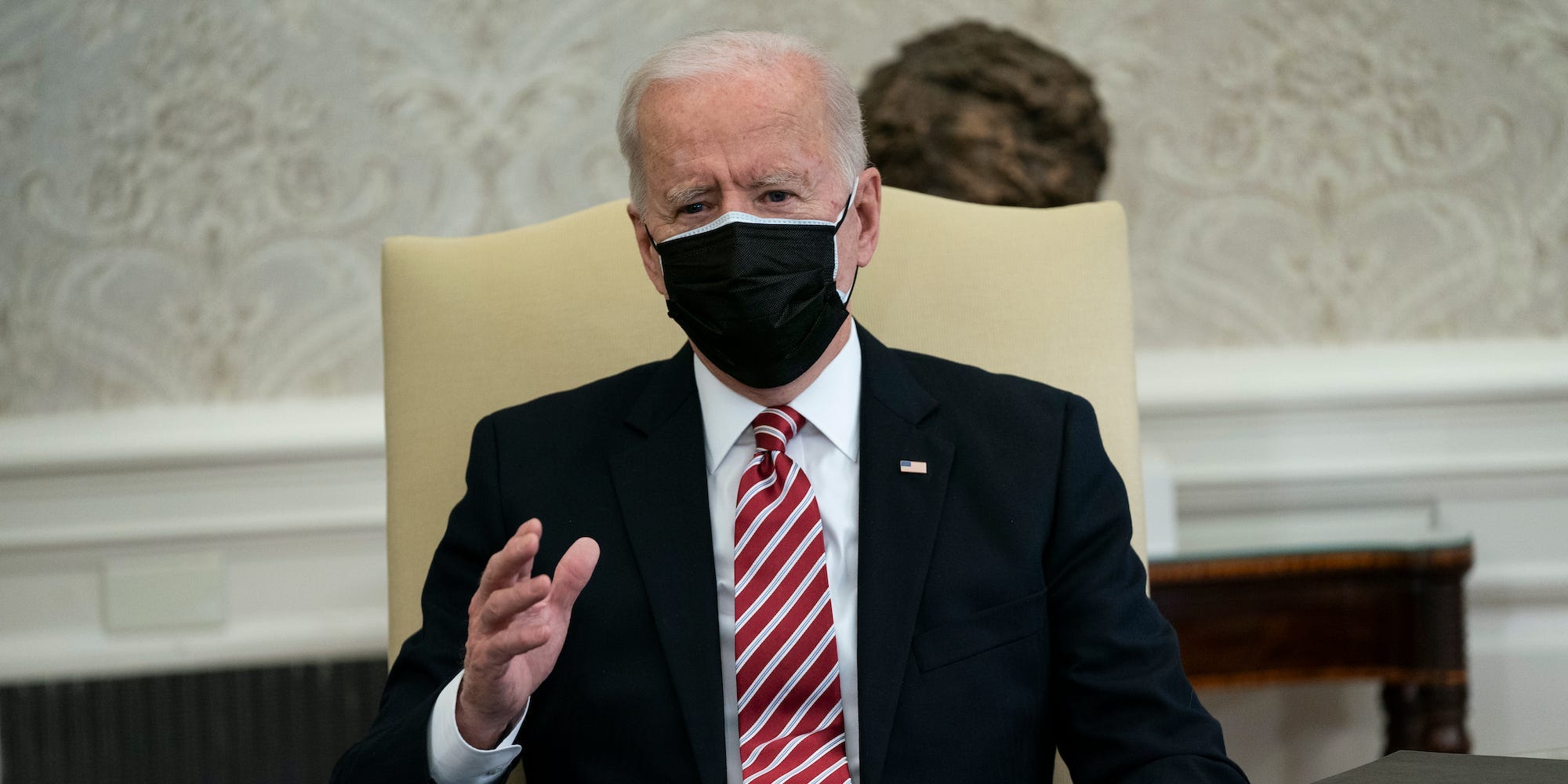
Evan Vucci/AP
- New polling shows widespread support for Biden’s $1.9 trillion COVID-19 relief package.
- A Politico/Morning Consult poll found that 76% of all voters and 60% of Republicans support the bill.
- The stimulus package is expected to get its first vote in the House on February 26.
- Visit the Business section of Insider for more stories.
A majority of all voters, including Republicans, support the passage of President Joe Biden’s proposed $1.9 trillion COVID-19 aid package, a new Politico/Morning Consult poll shows.
The legislation, called the American Rescue Act, is set to receive its first vote in the US House on February 26.
The Politico/Morning Consult poll found that 76% of all Americans strongly support or somewhat support the legislation, with just 17% saying that they somewhat oppose or strongly oppose the package.
Among Republicans, 60% of voters strongly support or somewhat support the bill, with 30% somewhat or strongly opposing the legislation.
Unsurprisingly, support for the bill was highest among Democrats, with nearly 90% saying they somewhat or strongly support the package.
—Cameron Easley (@cameron_easley) February 24, 2021
The poll, which surveyed 2,013 registered American voters from February 19-22, has a margin of error of ± 2 percentage points.
The relief package includes $1,400 direct aid checks to qualifying Americans, $350 billion in state and local aid, $130 billion for elementary schools, $3,600 for child tax credits, food aid, and rental assistance, funding for COVID-19 testing and vaccines, $400 per week in additional federal unemployment benefits through September 2021, and a raise of the federal minimum wage to $15 an hour.
If the measure passes through the House, it'll head to the Senate.
Senate Democrats are expecting to pass the bill through budget reconciliation, which allows the Senate to pass budget-related legislation with just a simple majority of 51 votes instead of the usual 60-vote majority required in the Senate to get past the filibuster.
The Senate is currently divided between 50 Democrats and 50 Republicans, with Vice President Kamala Harris serving as the tie-breaking vote, meaning that Democrats could pass the bill without any Republican votes.
But some elements of the package, particularly the minimum wage hike, may not pass muster under the Byrd rule, which stipulates that matters "extraneous" to the budget process cannot be passed through reconciliation.
Senate parliamentarian Elizabeth McDonough is expected to issue a ruling on whether the minimum wage increase is permissible under the Byrd rule on Wednesday or Thursday. Even if she gives it the green light, it may not end up in the final version due to opposition from moderate Democratic Sens. Joe Manchin and Kyrsten Sinema.
If the Senate makes changes to the package in order to comply with the Byrd rule before passing it through reconciliation, it'll go back to the House to be voted on again before heading to the president's desk.
Lawmakers are aiming to get the new package passed before March 14, when supplemental unemployment benefits included in the last federal COVID relief package passed in late December are set to expire.

